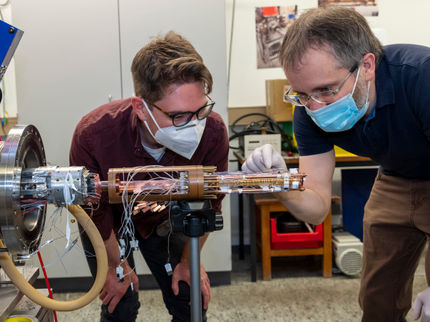Protons and antiprotons appear to be true mirror images
Advertisement
CPT invariance means that a system remains unchanged if three fundamental properties are reversed - C (charge), which distinguishes matter from antimatter, P (parity), which implies a 180 degree flip in space, and T (time). It is a central tenet of the standard model, and implies that antimatter particles must be perfect mirror images of matter, with only their charges reversed.
"This is an important issue," says Stefan Ulmer, who led the research, "because it helps us to understand why we live in a universe that has practically no antimatter, despite the fact that the Big Bang must have led to the creation of both. If we had found violations of CPT, it would mean that matter and antimatter might have different properties - for example that antiprotons might decay faster than protons - but we have found within quite strict limits that the charge-to-mass ratios are the same."
To perform the research, the team received antiprotons and negative hydrogen ions - as a proxy for protons - from the Antiproton Decelerator, and then trapped single antiproton-hydrogen ion pairs in a magnetic Penning trap, decelerating them to ultra-low energies. They then measured the cyclotron frequency of the pairs and compared them to find how similar they were. "What we found," says Ulmer, "is that the charge-to-mass ratio is identical to within just 69 parts per trillion." This measurement has four times higher energy resolution than previous measurements of proton-antiproton pairs, and further constrains the possibility of violations of CPT invariance. "Ultimately," he says, "we plan to achieve measurements that are at least ten or a hundred times more precise than the current standard."
The work also has implications for what is known as the weak equivalence principle - the idea that all particles will be affected by gravity in the same way, regardless of their mass and charge. The team used their findings to calculate that within about one part per million, antimatter and matter behave in the same way with respect to gravity.
According to BASE member Christian Smorra, "There are many reasons to believe in physics beyond the standard model, including the mystery of dark matter and, of course, the imbalance between matter and antimatter. These high-precision measurements put important new constraints and will help us to determine the direction of future research."






























































